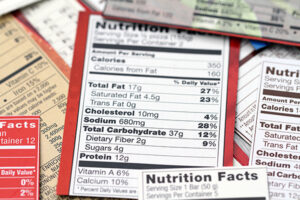ARE THERE REGULATIONS FOR ORGANIC FOOD?
There are no international standards; each country has different standards and regulations regarding the organic label. For some countries, the organic label is not regulated by the government. The organic label may be issued by private organizations.
ARE ORGANIC FOODS MORE NUTRITIOUS?
Organic foods are not any more nutritious than conventionally grown foods. A systematic review of 52,471 articles has found that there is no evidence of a difference in the nutritional quality between organic foods and conventional foods. Another review looking at 237 studies reached the same result.
ARE ORGANIC FOODS SAFER THAN CONVENTIONAL FOODS?
Organic foods are not any safer than conventional foods. Research published by the Nutrition Society has found that “organic” does not equate to “safe.” There is nothing safe about the chemicals used in organic agriculture. Organic farming methods are also not safer.
ARE ORGANIC FARMERS REQUIRED TO UNDERGO TESTING OF THEIR PRODUCTS?
Organic foods are not subject to laboratory tests after harvesting to confirm that they are organic. The inspection process only inspects the farming methods or the processing methods, not the final food product.
DO ORGANIC FOODS CONTAIN PESTICIDES?
The key factor in chemicals being cleared for use on organic crops is whether or not they occur naturally. In fact, organic farmers are permitted to use natural pesticides.
When the United States Department of Agriculture (USDA) tested 10,000 samples of crops, 409 of which were organic, it found that 21% of the organic samples contained pesticide residues. 40 out of the 41 pesticides found were synthetic.
ARE NATURAL PESTICIDES SAFE?
Natural pesticides could be just as harmful, or even more harmful, than synthetic pesticides.
For example,
- Spinosad comes from the soil bacterium Saccharopolyspora spinosa. This causes neurotoxicity in insects, and in animal studies it affected the thyroid glands and immune cells of the animals.
- Solanine is produced by potatoes as they turn green, and is also used as a natural pesticide. This substance makes people feel ill.
- Rotenone occurs in the roots and stems of some plants. It can cause symptoms similar to Parkinson’s disease and is potentially lethal.
ARE NATURAL PESTICIDES EFFECTIVE?
Natural pesticides tend to be less effective than synthetic pesticides. This means farmers typically have to use larger doses of these pesticides to get the same effect. USDA tests of the food products found 10 times the level of organic pesticides than conventional pesticides.
CAN WE TEST FOR NATURAL PESTICIDES?
Many natural pesticides are not tested for, meaning organic crops could have high levels of pesticides, and still pass inspections. There are generally no standard procedures for the testing of natural pesticides.
ARE NATURAL FERTILIZERS SAFER?
Natural fertilizers are not safer. Organic products tend to have higher levels of pathogens, such as E. coli, with the potential to make many people very ill. A study published in the Journal of Food Protection looked at 605 produce samples and found E. coli in 10% of the produce from organic farms, but only 2% of the produce of conventional farms.
A different study found Salmonella only on organic farms, and not on conventional farms. This is due to the use of manure, instead of artificial fertilizers. Conventional farms use manure as well, but they also use anti-microbial agents. Without those agents, organic foods run a high risk of containing bacteria that will make a person sick.
CAN WE WASH BACTERIA OFF?
Washing can remove some of the bacteria, but often not all. It doesn’t take much bacteria to make someone sick. Additionally, although washing may remove some of the bacteria, it might not remove the toxins produced by the bacteria, which can cause illness.
WHAT’S THE BEST WAY TO MAKE SURE OUR FOOD IS SAFE?
The best way to make sure our food is safe is to ensure that the food goes through laboratory testing for harmful residues such as heavy metals, pesticides, and microbes.
Source: Dr EE Zhang, eLead Global, EExplanation, Organic




